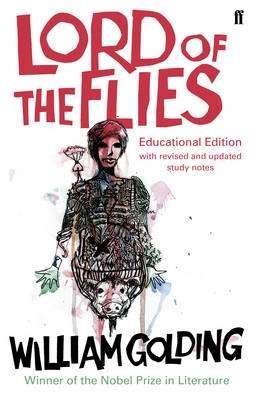Lord of the Flies, New Educational Edition

Editorial Faber
Fecha de edición enero 2013 · Edición nº 1
Idioma inglés
EAN 9780571295715
Libro
encuadernado en tapa blanda
Resumen del libro
Lord of the Flies is a novel that has captivated schoolchildren ever since it was first published in 1954. A teacher himself, Golding clearly understood what excites and interests children. It is not only a gripping story, with strong, sympathetic characters, but it also raises timeless and profound questions. Part of its lasting appeal, particularly in schools, surely arises from the way it tackles universal issues. The novel is a catalyst for thought-provoking discussion and analysis, not only concerning the capabilities of humans for good and evil and the fragility of moral inhibition, but beyond. The boys' struggle to find a way of existing in a community with no fixed boundaries invites readers to evaluate the concepts involved in social and political constructs and moral frameworks. Ideas of community, leadership, and the rule of law are called into question as the reader has to consider who has a right to power, why, and what the consequences of the acquisition of power may be. All of these concerns are current today and can be easily related to the novel through effective teaching and learning. This educational edition encourages original and independent thought from students, as well as guiding them through the text. The introductory material includes a biographical section on William Golding as well as providing information about the novel's historical context, which will be ideal for students completing GCSE and A-Level courses. At the end of the text there are chapter summaries, comprehension questions, discussion points and activities which inform the teaching and learning of the text. There is a glossary of less familiar words or phrases. This edition includes William Golding's essay 'Fable', which gives an insight into the author's view of the novel. For advanced students, it also includes essays introducing readers to some theoretical interpretations of the text. All of these are intended to inspire and generate creative teaching, learning and love of the novel.
Biografía del autor
William Golding (1911-1993) nació en Cornwall y se educó en Marlborough Grammar School y Brasenose College (Oxford). Antes de convertirse en escritor, fue actor, marinero, músico y maestro de escuela. En 1940 se unió a la Royal Navy y posteriormente participó en la operación del Día D y en la liberación de los Países Bajos. "El Señor de las Moscas", su primera novela, fue rechazada por varios editores, pero fue rescatada de la pila de rechazos de Faberx{0026}amp;Faber y publicada en 1954. Pronto se convirtió en un clásico moderno, vendió millones de copias, se tradujo a cuarenta y cuatro idiomas y Peter Brook la adaptó al cine en 1963. Golding escribió otras once novelas, una obra de teatro y dos colecciones de ensayos. Ganó el Premio Booker por "Ritos de paso" (Alianza Editorial, 2010) en 1980 y el Premio Nobel de Literatura en 1983. Aparte de la mencionada "Ritos de paso", Alianza Editorial cuenta en su catálogo de la colección de El libro de bolsillo con las siguientes novelas: "El Señor de las Moscas" (2010), "El dios Escorpión" (2011), "Los hombres de papel" (2011), "Fuego en las entrañas" (2011) y "Cuerpo a cuerpo" (2011). www.william-golding.co.uk








